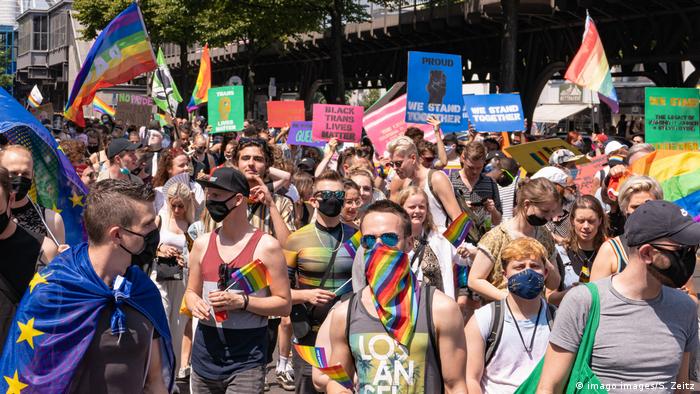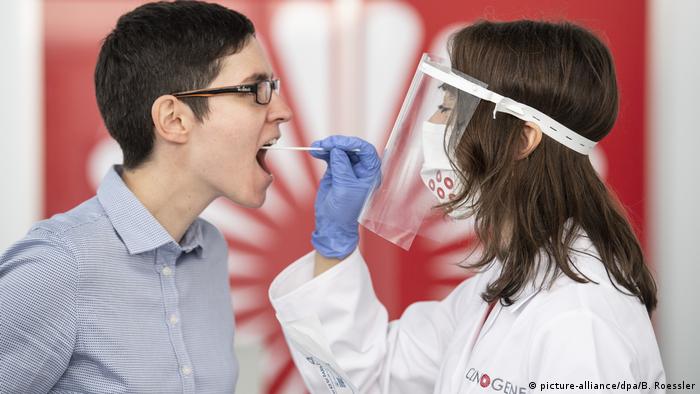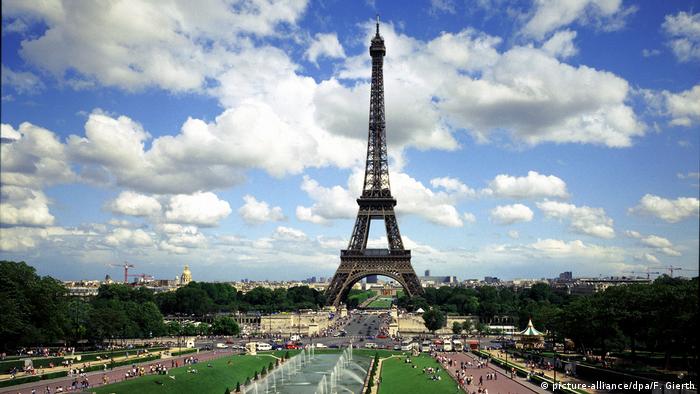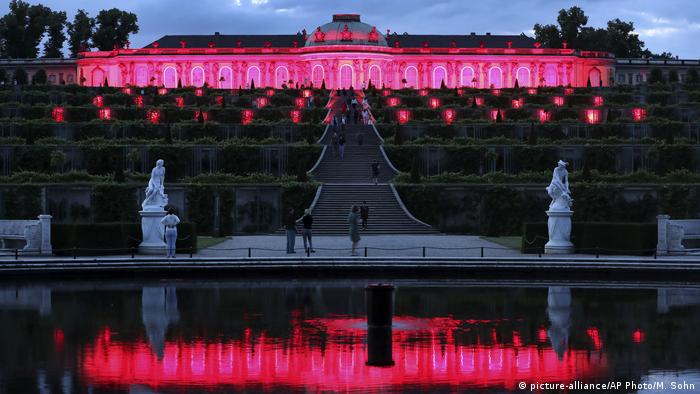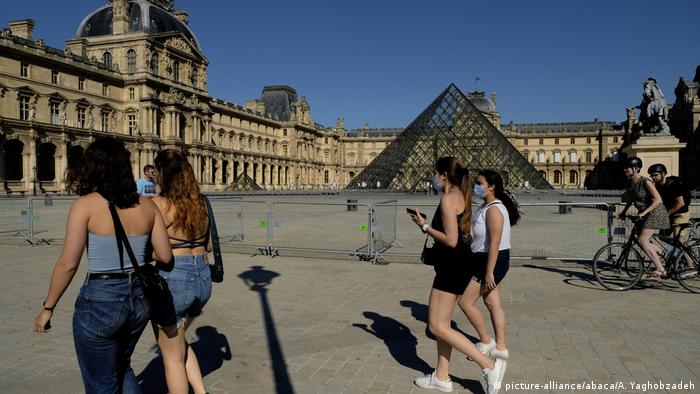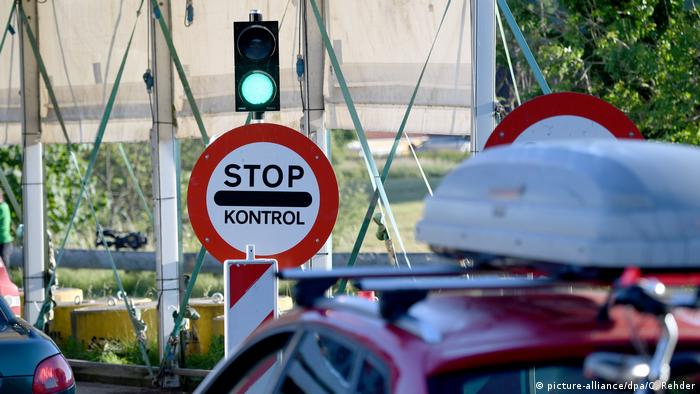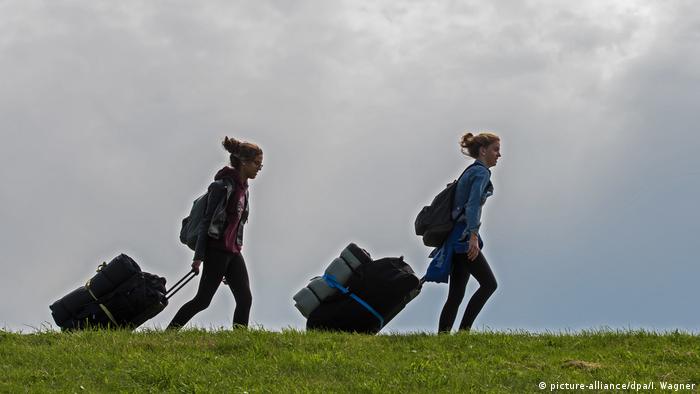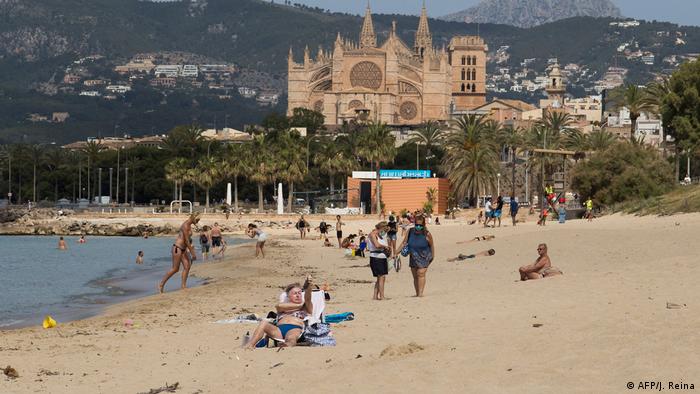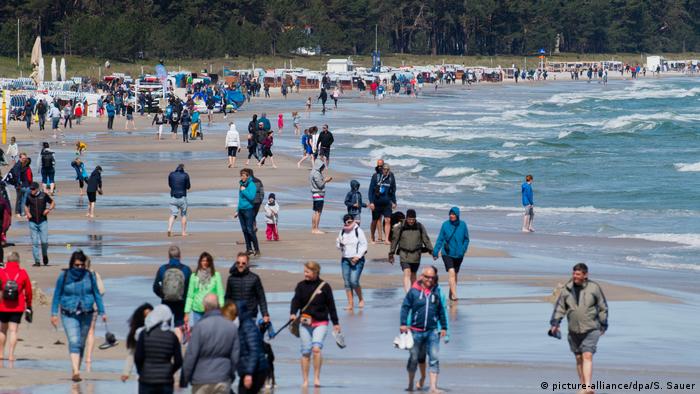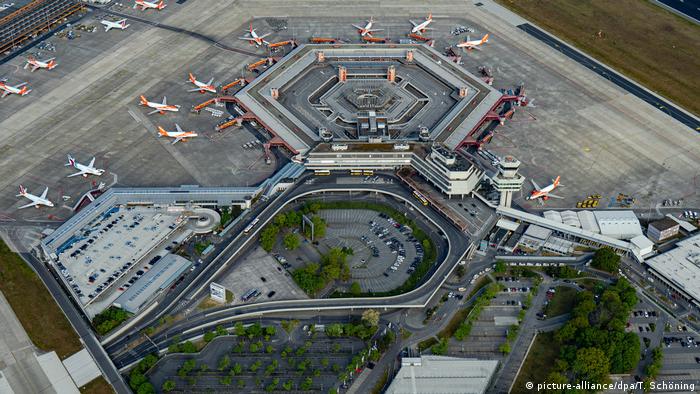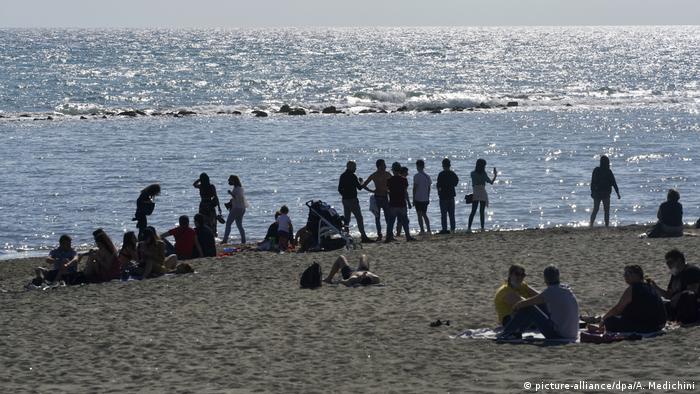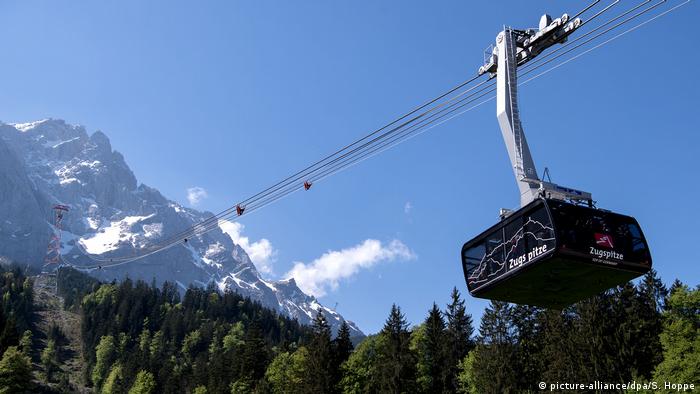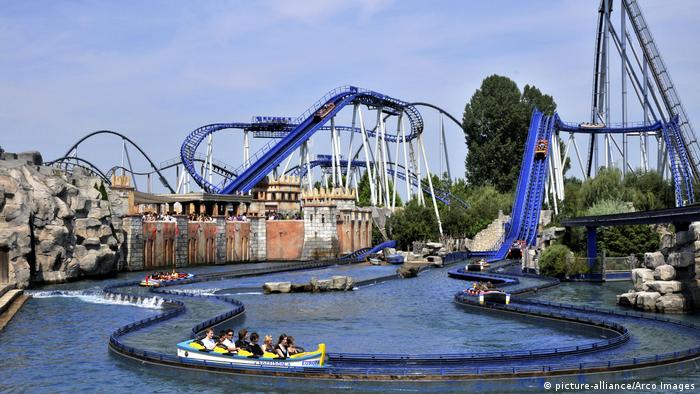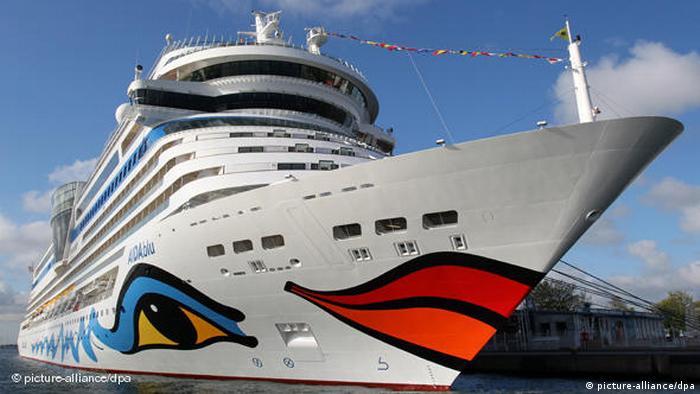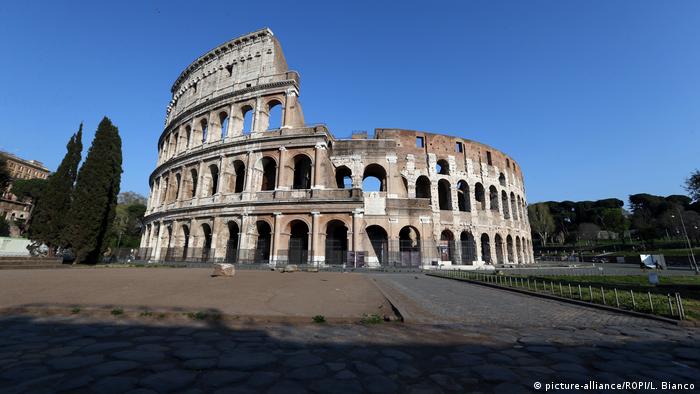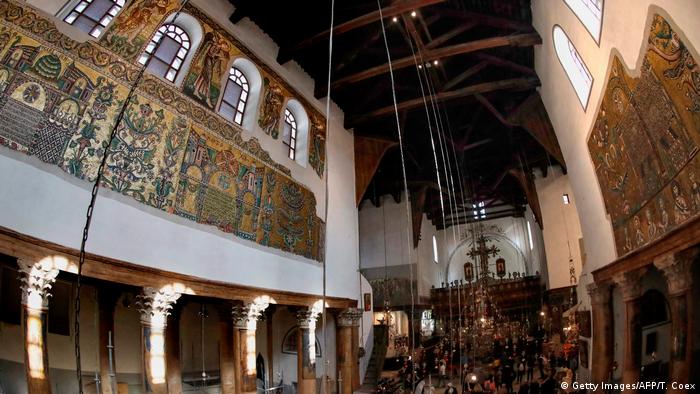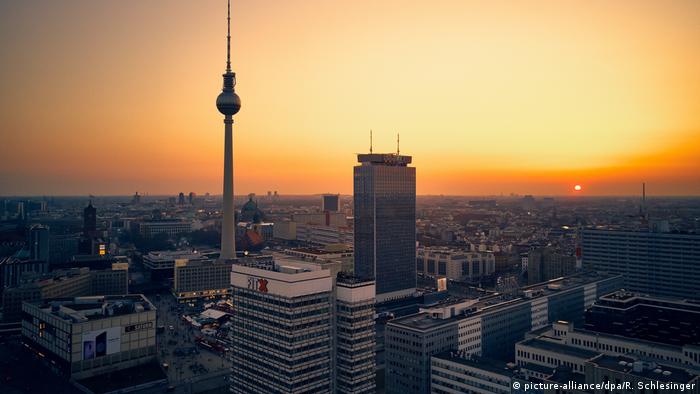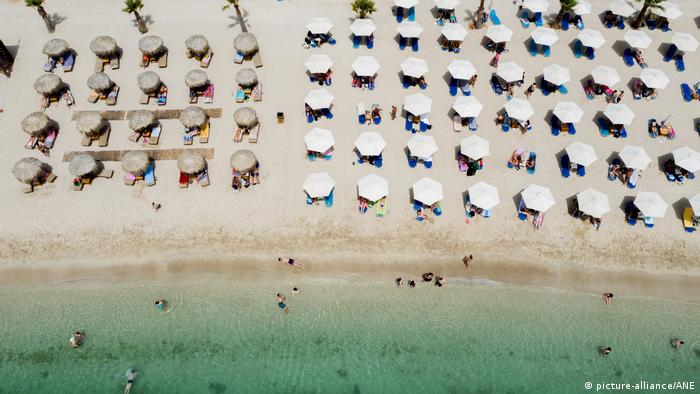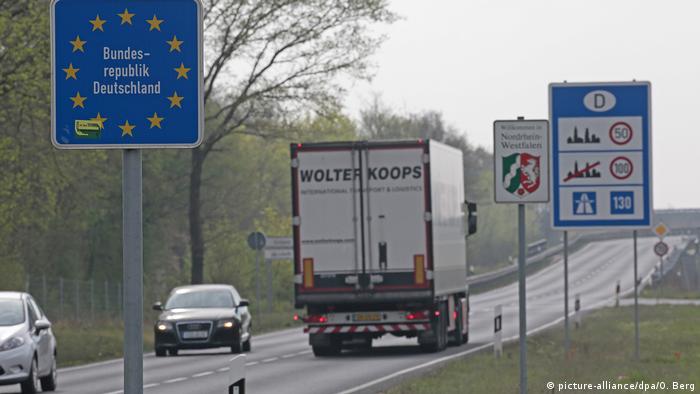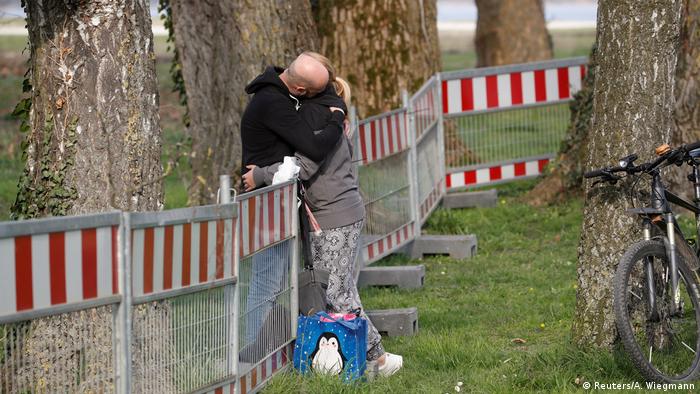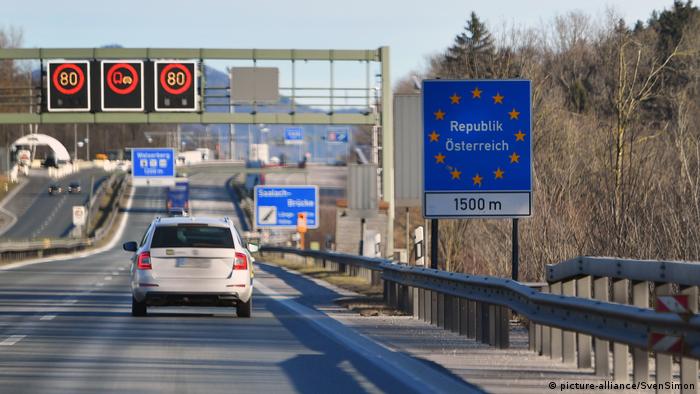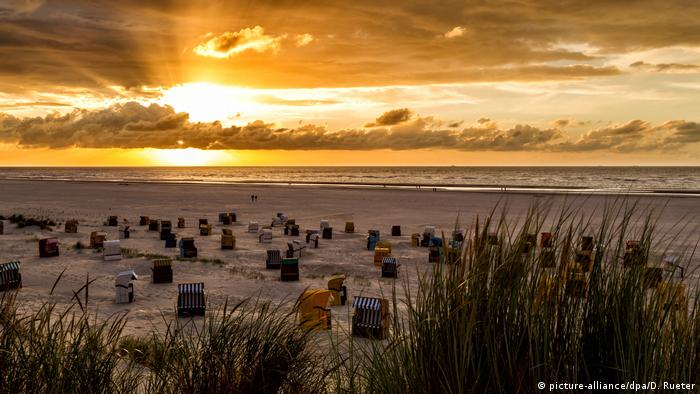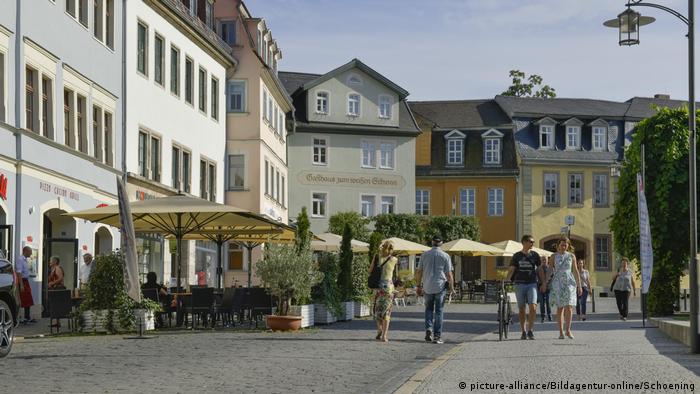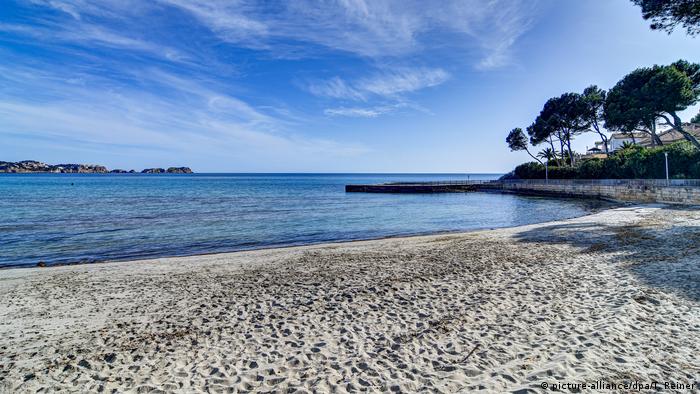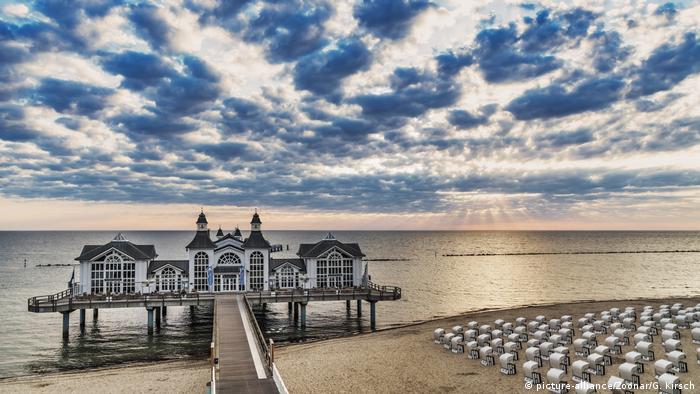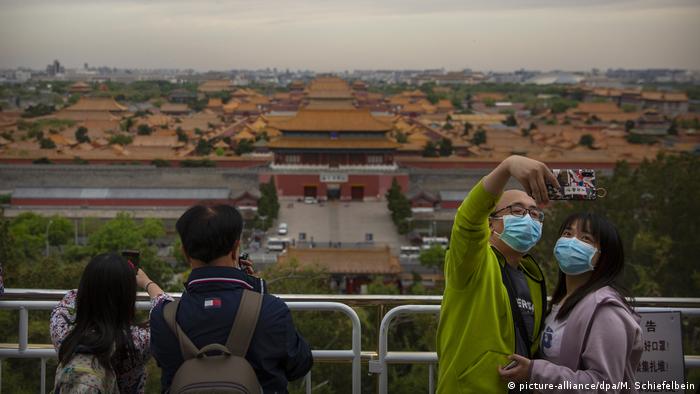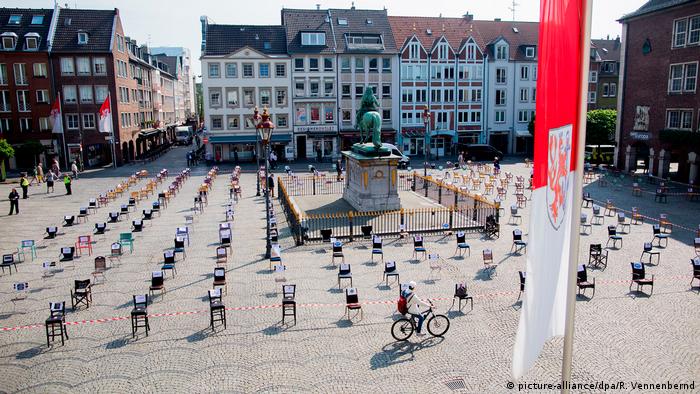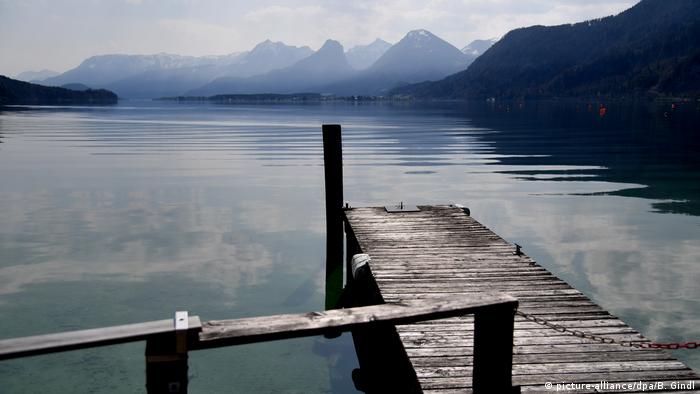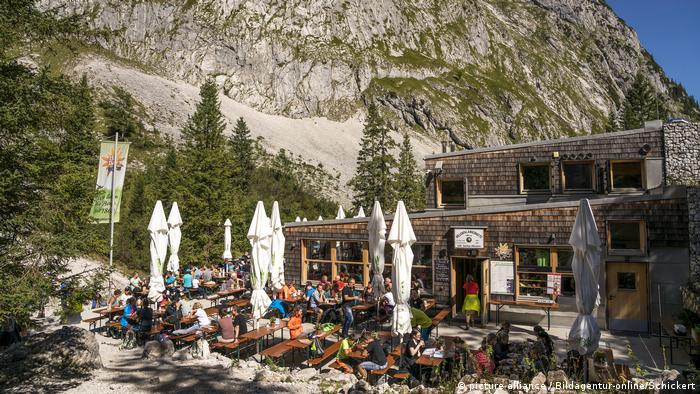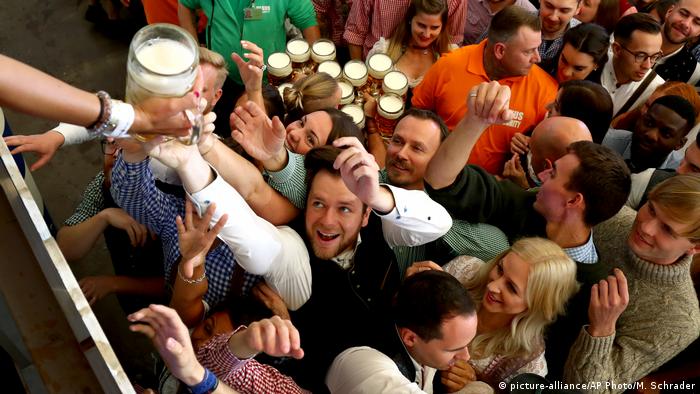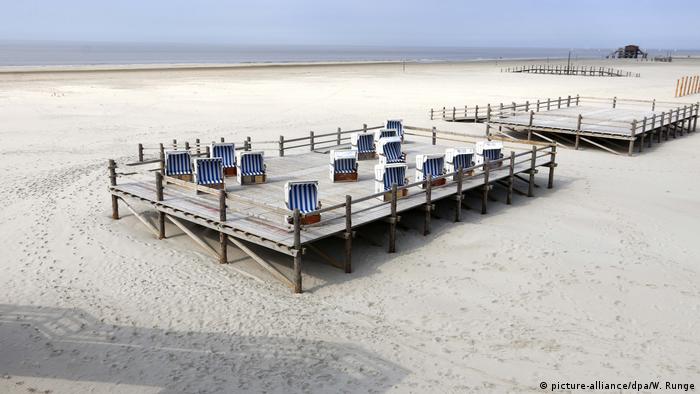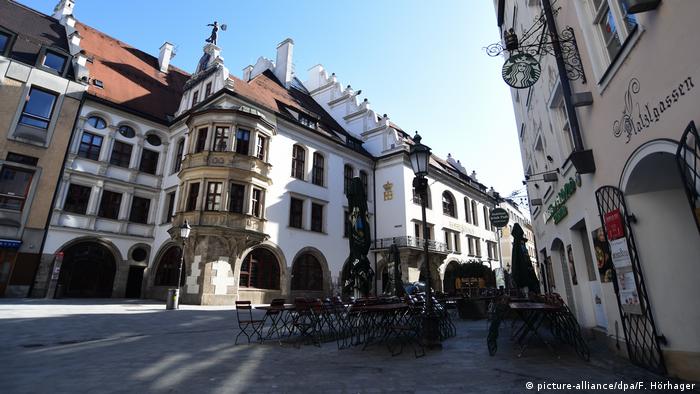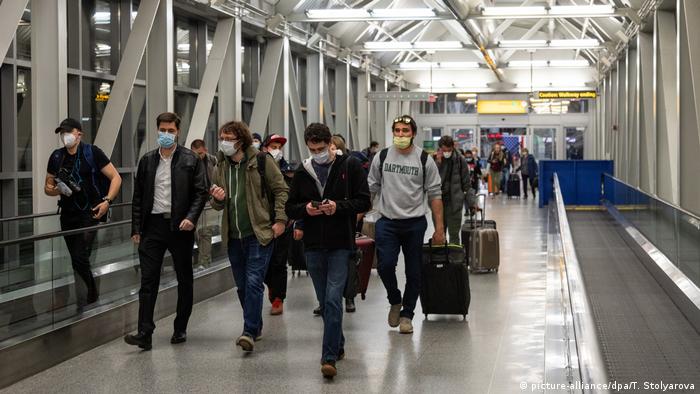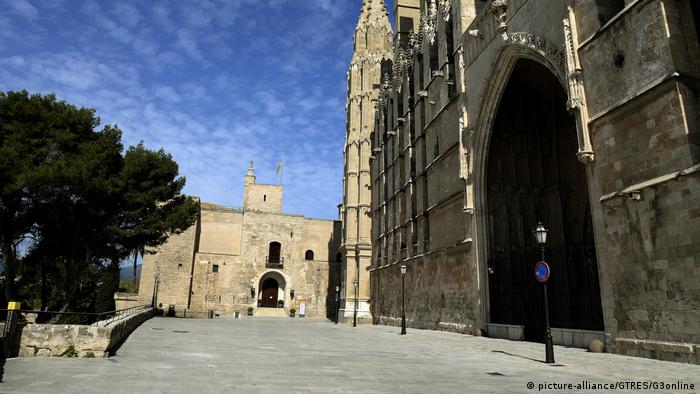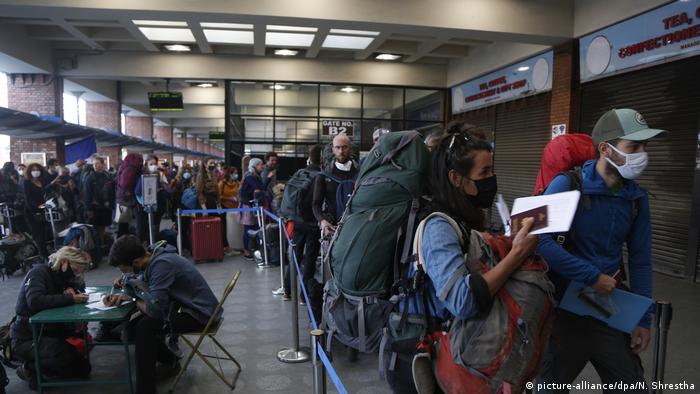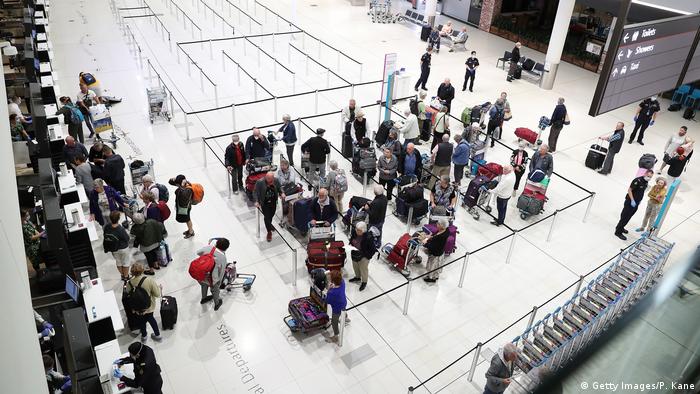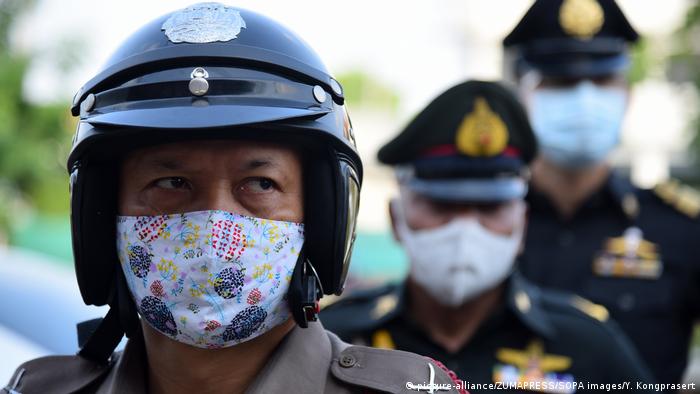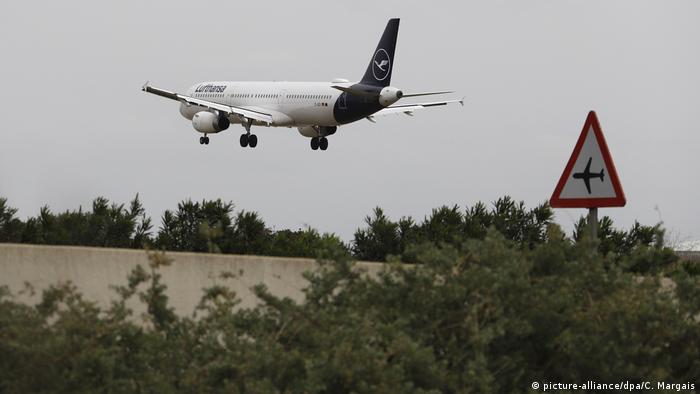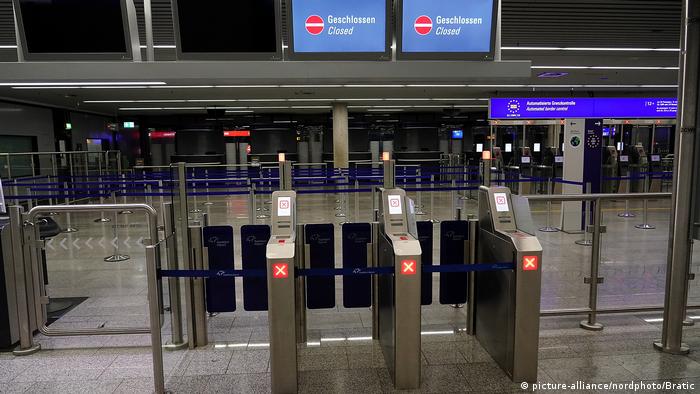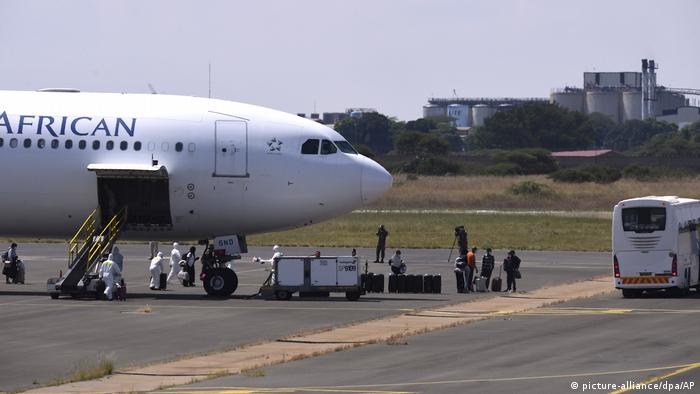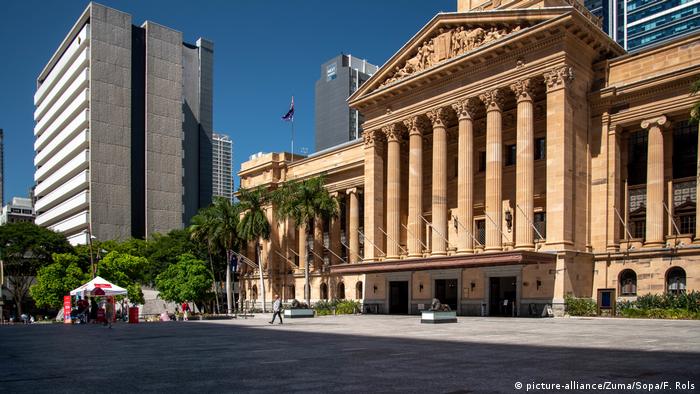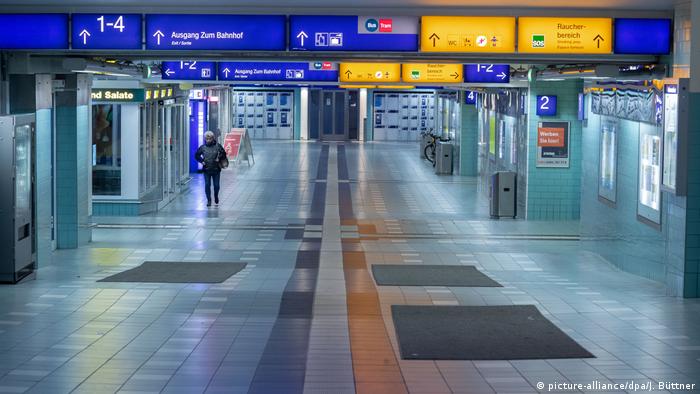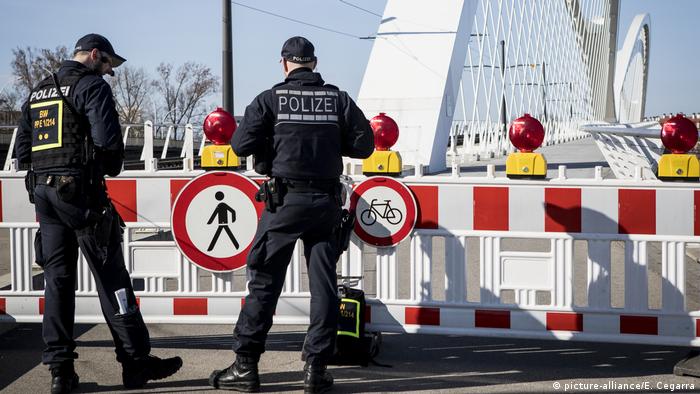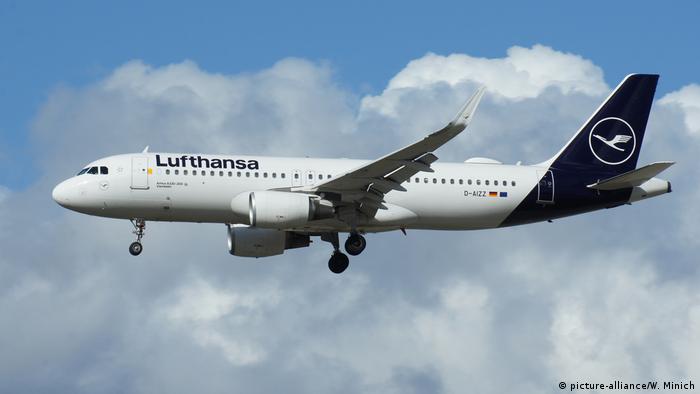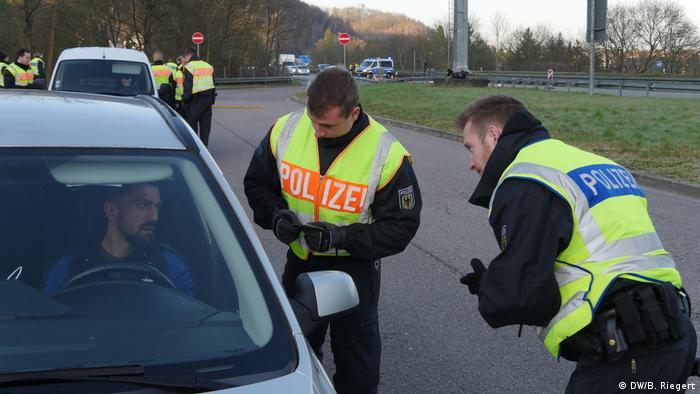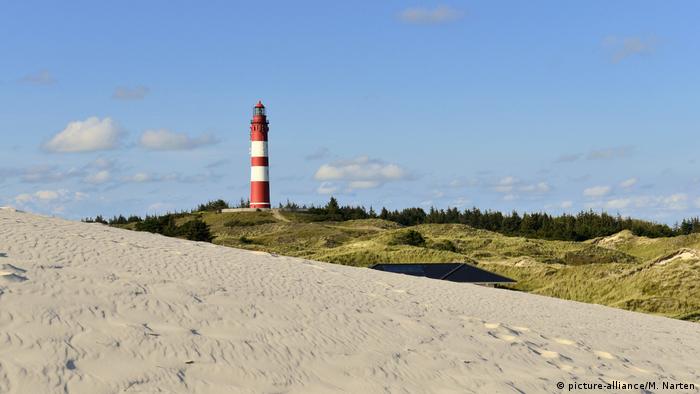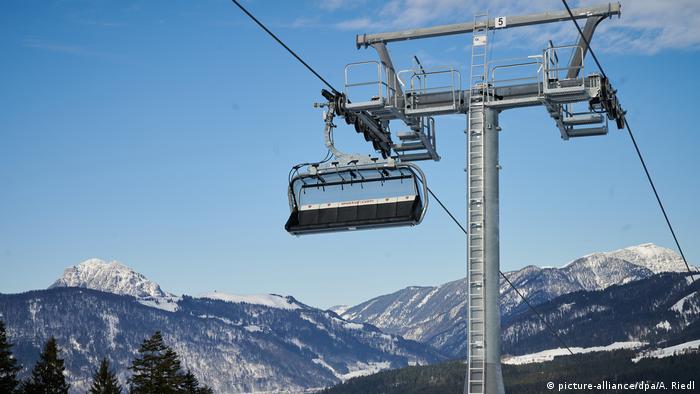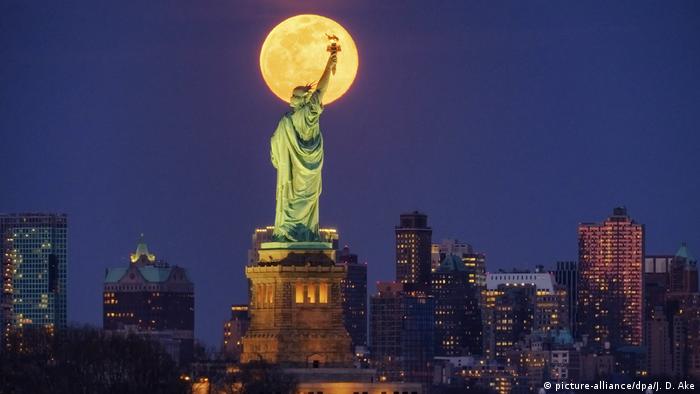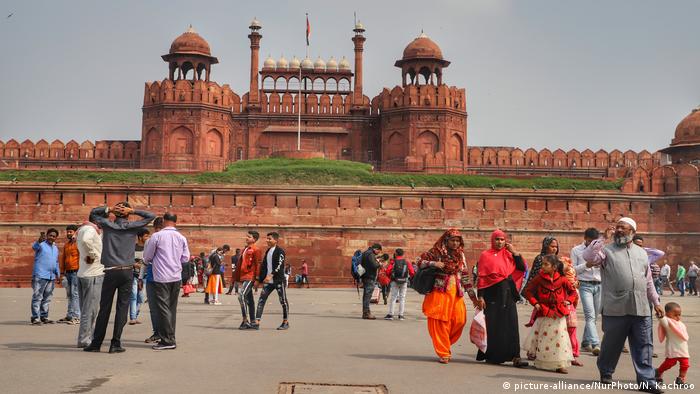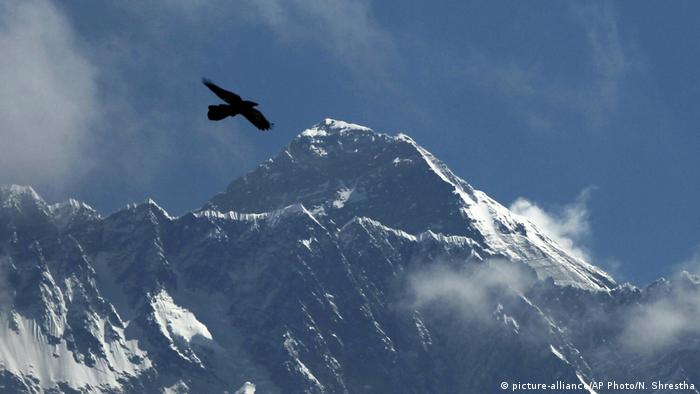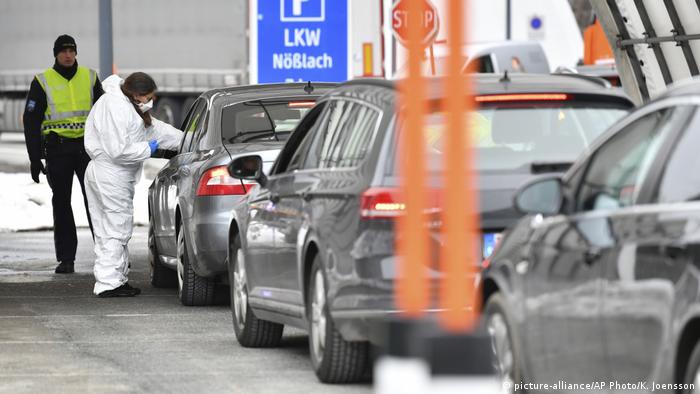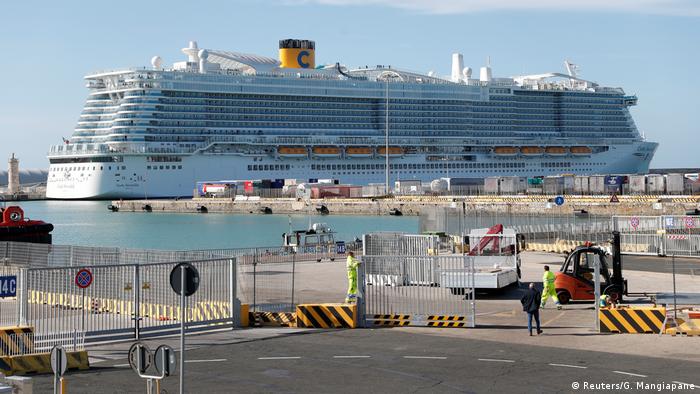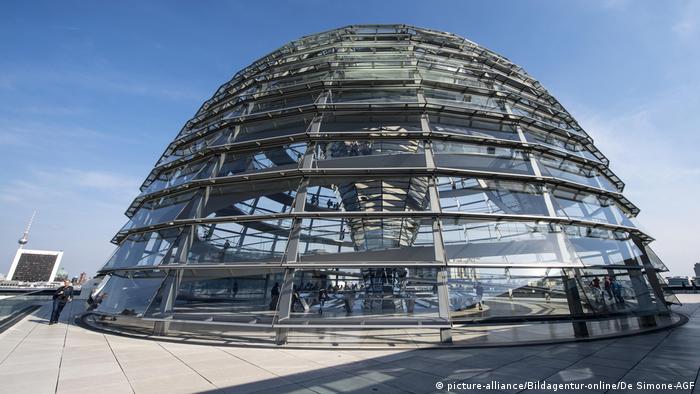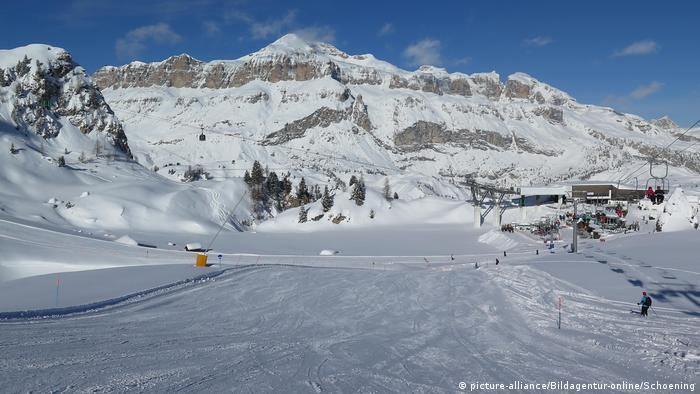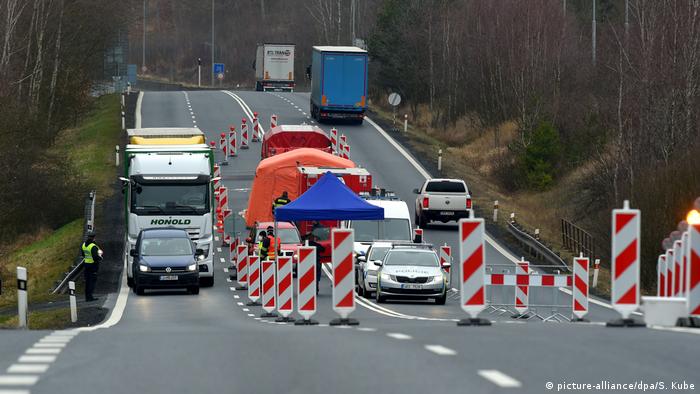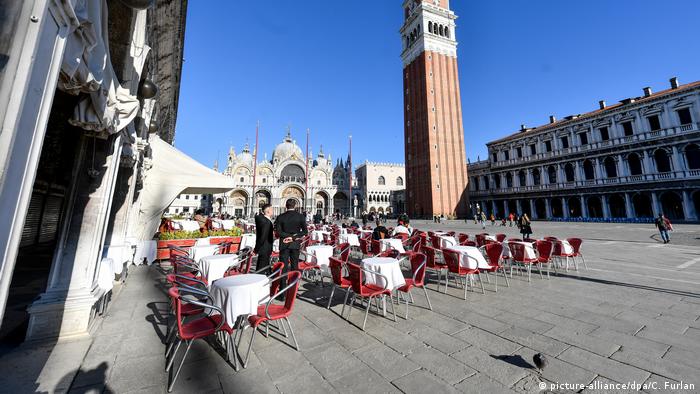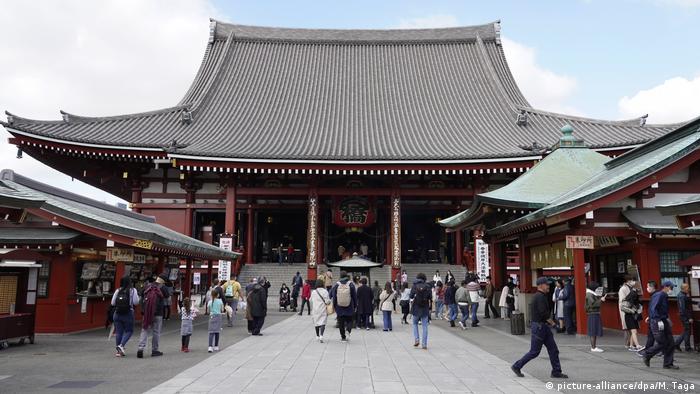More than 500,000 people have died of COVID-19 and the number of infections worldwide has surpassed 10 million. The World Health Organization has warned that "the worst is yet to come." Follow DW for the latest.
- Half a million people have died from COVID-19
- Global infections surpass 10 million
- The US, which accounts for a quarter of all cases and deaths, reimposes restrictions
- The World Health Organization (WHO) says things will get worse unless the international community unites against the pandemic
- Airbus says it plans to cut production by 40% as the pandemic cripples the aviation industry
All updates in Universal Coordinated Time (UTC/GMT)
19:30 A plan to boost spending in Germany was approved by the upper house of Bundesrat on Monday, with Germany set to cut VAT from 19% down to 16% on July 1. The move would make goods cheaper for the consumers.
The plan also foresees more money for families with children. The state will pay out a €300 ($338) bonus for every child entitled to child benefits, with the first check to arrive in September.
Economy Minister Peter Altmaier said that the move makes it possible for the country to see economic growth in the second half of the year.
The government hopes to stimulate the economy and mitigate the economic consequences of the pandemic. However, a survey by the Yougov pollster found that only 24% of Germans believe the measures would make them more prone to spending money, while 57% believe they would not.
18:50 Some 180 German workers who helped fight the coronavirus pandemic in their home country flew to the Greek island of Kos for a free vacation organized by German tour operator TUI. Kos is the birthplace of Hippocrates, considered the father of medicine.
The organizers say they wanted to thank medical staff, police officers, supermarket workers and others who continued to work while most of Germany was put on lockdown.
The Monday flight was the first commercial foreign flight to reach the local airport since the the borders opened. Passengers wore masks while climbing out of the aircraft.
"The virus is still there ... We have to be careful and we have to follow the rules and we'll manage it together," one of the passengers, Stephen, told Reuters news agency.
18:35 The swell of coronavirus cases in the US is largely due to US nationals ignoring advice on physical distancing and not wearing masks, said top US infectious disease official, Dr. Anthony Fauci.
He also slammed the steps taken by governments in some US states, who moved to reopen without waiting for a two-week decline in cases.
"That's a recipe for disaster," Fauci said of ignoring the benchmark. "Now we're seeing the consequences of community spread, which is even more difficult to contain than spread in a well-known physical location like a prison or nursing home or meatpacking place," he told CNN.
18:20 The coronavirus pandemic has already canceled the Geneva International Motor Show for this year, but the organizers are now saying that the next year's event has also been scrapped.
The prestigious car show went digital this March, with audience staying away from the Palexpo center due to the infection risk. Big car brands, such as Mercedes and Porsche, presented their newest models to viewers online.
The organizers have now said that they polled car companies and have "given up the idea to organize a 2021 edition." The event would presumably have taken place in March next year.
"A majority of exhibitors have said they probably will not participate in a 2021 edition and that they would prefer taking part in a 2022 edition," said the committee behind the event.
17:45 A round of treatment with remdesivir, an experimental drug found to shorten recovery time in COVID-19 patients, is set to cost $2,340 (€2,084) per person in rich industrialized nations. The fee would cover a five-day treatment course.
The US pharma company Gilead Inc, which produces the antiviral medication, also pledged to direct nearly all of its supply to the US until the end of September. They did not provide details for their supply strategy to other industrialized nations.
The price is somewhat lower than expected, possibly due to the recent discovery that a cheap and widely available steroid dexamethasone can cut coronavirus mortality rates. Scientists believe that remdesivir has no significant event on mortality.
However, Gilead Inc said they would charge $3,120 per course for US patients with private health insurance, as opposed to those on government programs. The company is also working with partners in India and Pakistan to set up a separate, much cheaper supply for 127 developing countries.
In an open letter, Gilead chief Daniel O'Day say that the premium price was well below the value, due to its effect of shortening recovery time and cutting hospital expenses. However, some activists argue that the drug should be much cheaper because it was developed with financial aid from the US government.
Peter Maybarduk, from Public Citizen's Access to Medicines Program, said the price was "an offensive display of hubris and disregard for the public."
16:44 WHO chief Tedros Adhanom Ghebrevesus said the novel coronavirus pandemic is far from being over. He warned that the deadly pathogen still has "a lot of room to move" as the US, Brazil and Russia struggle with a surge in positive cases.
"We all want this to be over," he said. "We all want to get on with our lives. But the hard reality is that this is not even close to being over. Although many countries have made some progress globally, the pandemic is actually speeding up."
The US has criticized the WHO for its response, claiming the UN agency has catered to Chinese interests. But Tedros pushed back in his briefing, saying the WHO is sending a team to China this week in order to investigate the origins of the virus.
The WHO chief said the pandemic "could have been prevented through the tools we have at hands," pointing to effective public health guidelines.
"Time after time and country after country, what we have seen is that this virus can be suppressed if governments are serious about what they have to do, and if communities do their share," he said.
He pointed South Korea, Japan and even Germany for their "comprehensive, sustained strategy" in controlling their respective outbreaks.
Read more: How are new coronavirus hot spots being contained?
16:20 Canadian Prime Minister Justin Trudeau urged citizens to remain vigilant as Canada's southern neighbor, the United States, manages a surge in cases of the novel coronavirus. Trudeau said the overall situation in the country was improving although hot spots remained.
"Since the beginning of this crisis, our government has been focused on keeping Canadians safe," said Trudeau. "While we've made good progress over the past few months, the virus remains a very serious threat to our health."
14:37 The German federal state of North Rhine-Westphalia (NRW) has decided to lift the lockdown on the community of Warendorf, but it has extended the confinement in neighboring Gütersloh for an additional week.
The two communities were at the center of a coronavirus lockdown that had besieged its meat-processing plants and led to criticisms of the meat industry, as well as a national conversation over how to contain localized outbreaks.
A recent mass testing of nearly 40,000 people in the two districts showed that community spread had taken place in Gütersloh. The neighboring community of Warendorf, however, showed a much slower rate of contagion.
Minister of Health Karl-Josef Laumann warned that in the case of Gütersloh "we cannot be certain at this time, that the outbreak can be contained." For that reason, authorities chose to extend the lockdown, adding that they were closely monitoring the situation.
13:45 Iran's coronavirus death toll rose by 162 over the past 24 hours, in the highest single-day increase since the country's outbreak first emerged in February.
"This increase in numbers is in fact a reflection of our overall performance, both in terms of reopening and in compliance with health protocols," Health Ministry spokeswoman Sima Sadat Lari said in a briefing.
The previous daily peak of 158 fatalities was recorded almost three months ago. However, in terms of new infections, official figures have shown an upward trend since early May.
Iran has so far recorded a total of 225,000 cases, with 10,670 deaths from the novel virus.
13:10 New Delhi has set up one of the world's largest hospitals, with the use of 10,000 cardboard beds to help the fight against COVID-19, taking just ten days to construct.
The hospital was created on the premises of the Radha Soami religious center on the outskirts of the city, which is home to some 25 million people, and is India's hardest hit area, having recorded over 83,000 infections.
While 2,000 beds were already staffed by the requisite doctors and nurses, the hospital will be fully operational by July 5.
"The beds are easy to assemble and were manufactured in no time. Because of this we were able to get this facility started in 10 days' time, whereas other manufacturers would take at least twice the time," senior official BM Mishra told the DPA news agency.
India's largest coronavirus-dedicated facility, reportedly the size of 22 football fields, will deal with "mild to moderate" cases and will be run by the paramilitary Indo-Tibetan Border Force, which guards the country's border with China.

Over 10,000 disposable cardboard beds have been set up in the field hospital on the outskirts of New Delhi
11:45 As of Wednesday, tourists traveling to Greece will be required to fill in an online questionnaire 48 hours prior to arrival, to determine whether they need to be tested for COVID-19 when they get to the country.
Travelers are given scannable bar codes after they have completed the questionnaire, which is mandatory until August 31. The questionnaire requires travelers to submit personal details such as their nationality and the countries they have traveled through in the previous 15 days.
Meanwhile, Greece has launched a promotional campaign to kick-start the tourism industry, which accounts for a quarter of its gross domestic product.
-
Coronavirus: The consequences for tourism
Corona test center opened at Frankfurt Airport
A corona test center has been in operation at Frankfurt Airport since June 29, 2020. Here, passengers both departing and arriving can be tested to avoid quarantine. The standard procedure, in which the results are available as a download within six to eight hours, costs 59 euros. Around 300 tests can be performed per hour.
-
Coronavirus: The consequences for tourism
Paris Eiffel Tower is open again
The Parisian landmark was closed for three months, and now visitors can go up it again. But only in limited numbers and on foot. There are 765 steps to the second floor viewing platform. Wearing a face mask is mandatory. The top of the Eiffel Tower will remain closed until further notice, as will the elevators. The number of tickets on sale is limited and they must be ordered online in advance.
-
Coronavirus: The consequences for tourism
Night of Light - nationwide protest of the event industry
Just like Sanssouci Palace in Potsdam, 8900 buildings in Germany and neighboring states were bathed in red light on Monday (June 22). With the illuminated memorials, the event industry wanted to draw attention to their precarious situation and demand more state aid. Concert halls, music clubs and other event locations have been closed since mid-March and are not generating any income.
-
Coronavirus: The consequences for tourism
Semperoper in Dresden reopens
On June 19, after a three-month coronavirus break, the curtain will rise again at the Semperoper: Anna Netrebko and Yusif Eyvazov will star in the concert performance of Verdi's opera "Don Carlos". The approximately 300 tickets (out a total of 1300 seats) were sold out within 15 minutes. Until the summer break on July 18, there will be further weekend performances at Dresden's Semperoper.
-
Coronavirus: The consequences for tourism
World famous Alhambra in Granada opens again
The Alhambra Castle in Granada in southern Spain will open its doors to tourists again on June 17. Initially, only 4,250 visitors are to be admitted at the same time — only half as many as usual. In addition, masks are mandatory. The Alhambra is considered the most important testimony to Arab architecture in Europe and is a World Heritage site.
-
Coronavirus: The consequences for tourism
"Re-open EU": A website with travel rules for Europe
Entry regulations, masks, quarantine? The new EU overview website "reopen.europa.eu" provides information on the coronavirus rules of individual EU countries — and in 24 languages. Tourists can enter their destination country on the website and find out about regulations that apply there. So far, the site contains information on 27 EU countries and is to be continuously updated.
-
Coronavirus: The consequences for tourism
Germany's borders are open again
During the night of Monday (June 15), the federal police ended the border controls that had been introduced three months ago because of the coronavirus crisis. Complete freedom of travel between Germany and its neighboring countries is back in effect. At the same time, the Foreign Office's travel warnings for 27 European countries ended.
-
Coronavirus: The consequences for tourism
Bookings on Airbnb are picking up again
In Germany, Airbnb accommodation bookings in the past week were 60 per cent higher than a year ago, the global provider announced on June 11. These bookings were mainly for places within a radius of 80 to 320 kilometers (50-220 mi) of the users' home. However, things at Airbnb are far from business as usual. The company had to cut about 1900 jobs worldwide because of the coronavirus crisis.
-
Coronavirus: The consequences for tourism
German government extends worldwide travel ban
The beaches of the world people dream of, like here on Ko Phi Phi in Thailand, will have to do without German tourists. The German government has extended the travel warning for tourists due to the coronavirus pandemic for more than 160 countries outside the EU until August 31. However, exceptions can be made for individual countries where the spread of the virus has been sufficiently contained.
-
Coronavirus: The consequences for tourism
Tourist pilot project launched on Mallorca
6000 Germans will be the first foreign tourists to be allowed to travel to the Balearic Islands from Monday (June 15). According to Spanish media, the pilot project is intended to test the security precautions at airports and hotels before all of Spain opens its borders on July 1. Germany was chosen because the epidemiological situation there is similar to that on the Balearic Islands.
-
Coronavirus: The consequences for tourism
App to regulate beach visits on the Baltic Sea coast
A new app is to help manage the flow of visitors to the Baltic Sea beaches, Schleswig-Holstein's state premier Daniel Günther announced on June 7. Visitors use the app to register their desired time slot on the beach. If there is enough space available, they will be given an access authorization. The municipality of Scharbeutz developed the system, which could now also be used by other places.
-
Coronavirus: The consequences for tourism
Las Vegas reopens casinos
After having to close because of the coronavirus crisis, the casinos in Las Vegas reopened on Thursday (June 5). Hygiene precautions are to reduce the risk of infection. Visitor capacity has been reduced to half, plexiglass panels separate players from croupiers, and the casino tokens (chips) are regularly disinfected. Nightclubs and big shows in the casinos are still not allowed at the moment.
-
Coronavirus: The consequences for tourism
Tegel Airport to remain open — for the time being
Berlin's Tegel Airport will not be temporarily closed after all. Airport manager Engelbert Lütke Daldrup said on Wednesday (June 3) that the number of passengers was even expected to rise again. Earlier, the German government had announced that it would lift its travel warnings for 29 European countries on June 15. On that day, Tegel was supposed to go off the grid.
-
Coronavirus: The consequences for tourism
Italy reopened for Europeans
Starting on Wednesday (June 3), tourists from Europe have been allowed to enter Italy again, the country that was one of the worst hit by the coronavirus pandemic worldwide. A two-week quarantine for travellers from Europe is no longer required. This should save the travel season. Italians will again be able to move freely throughout the country and travel to other regions.
-
Coronavirus: The consequences for tourism
Neuschwanstein Castle is open again
Neuschwanstein Castle — since Tuesday June 2 — is again open to tourists. Previously, the Bavarian state government had made a whole range of tourist attractions such as the boat trip on Lake Starnberg or Nymphenburg Castle accessible again. One of the attractions that will remain closed due to the coronavirus because of restricted space is the royal house at Schachen.
-
Coronavirus: The consequences for tourism
Cable cars in Bavaria are back in operation
The Zugspitze, Germany's highest mountain at 2962 meters (9718 ft.), is accessible again. From Saturday (May 30) the cable cars and chair lifts in Bavaria are allowed to run again. Physical distancing and compulsory facemasks are a matter of course, the number of passengers is limited to 35% of the transport capacity. The first mountain huts are also opening again.
-
Coronavirus: The consequences for tourism
Roller coasters are running again at Europapark Rust
This is the first large amusement park in the world to resume operations. Rules are: Facemasks must be worn in the queue and every second seat must be left empty. More than 2.5 million tickets have already been requested online for the coming weeks. The Europapark Rust, located in the triangle of Germany, France and Switzerland, attracted 5.7 million visitors last year.
-
Coronavirus: The consequences for tourism
Aida cancels cruises until end of July
The 14 cruise ships of the German Rostock-based shipping company Aida Cruises will remain in port until July 31. In many holiday destination countries the regulations for international tourism are still being discussed, the company announced. The Italian shipping company Costa is also extending the cruise suspension for its fleet until July 31.
-
Coronavirus: The consequences for tourism
Colosseum and other sights in Italy open again
Rome's 2,000-year-old landmark can finally be visited again from June 1, and the Vatican Museums will also reopen on that day. Ancient Pompeii, south of Naples at the foot of Mount Vesuvius, is already welcoming visitors again, but only those from within the country. From June 3, however, foreign tourists will be able to return to Italy and visit the ancient sites.
-
Coronavirus: The consequences for tourism
The Church of the Nativity in Bethlehem can be visited again
From today (May 26) one of the most sacred places of Christianity will be open to the public again. Only 50 people can enter the Church of the Nativity in Bethlehem; wearing facemasks is compulsory. While Jews have already been allowed to pray again at the Western Wall also known as the Wailing Wall, in Jerusalem, the Al-Aqsa Mosque on the Temple Mount is to open to Muslims at the end of the week.
-
Coronavirus: The consequences for tourism
Tourism on Greek islands starts again
From Monday (May 25), Greece's islands will be accessible again by plane and ferry for domestic tourists. Taverns, bars and cafes are reopening nationwide. Ferries are to sell only 50% of their tickets, and taverns are only allowed to occupy half of their tables. The list of countries from which foreign tourists can enter Greece without a two-week quarantine will be announced at the end of May.
-
Coronavirus: The consequences for tourism
Berlin Television Tower reopens
Starting on May 22, visitors will again be allowed on to the viewing platform and restaurant of the Berlin TV tower. Only about 50 people are allowed in at any one time, masks are mandatory, and tickets must be reserved online. At 368 meters (1207 ft.), the Berlin Television Tower is the tallest building in Germany and a popular tourist hotspot.
-
Coronavirus: The consequences for tourism
Climbing season on Japan's highest mountain Fuji cancelled
Due to the coronavirus pandemic, Japanese authorities have imposed a climbing ban on Mount Fuji on May 18, and all four routes on the mountain have been closed. Normally during the climbing season in summer, which lasts only two months, thousands of people climb the slopes of the volcano daily in single file. At 3,776 meters (12,389 feet), the mountain is the highest in Japan.
-
Coronavirus: The consequences for tourism
Successful start of the beach season in Greece
In Greece, all beaches in the country were reopened on May 16. According to media reports, strict regulations were observed: The distance between parasols had to be four meters and only two sunbeds per parasol were allowed. Beach bars could only sell packaged food and not serve alcohol. Is this a preview of summer holidays in Europe despite the coronavirus pandemic?
-
Coronavirus: The consequences for tourism
Quarantine restrictions for entry into Germany to be relaxed
From May 15, people entering North Rhine-Westphalia from other EU countries and Schengen states no longer have to go into a 14-day home quarantine. The other German states are to follow in the next few days. Iceland, Norway, Liechtenstein and Switzerland are also exempt from the quarantine regulations, making travel to neighboring countries much easier.
-
Coronavirus: The consequences for tourism
Borders are opening, for lovers too
On May 16, Germany opened its borders to neighboring countries France, Austria and Switzerland. There will only be random checks, and no more checks at all for Luxembourg. However, there must still be "good" reasons for crossing the border. And love is accepted as such. For example, German-Swiss couples at Lake Constance (photo) — can visit each other again.
-
Coronavirus: The consequences for tourism
Austria to open border to Germany again
The Austrian government has announced that the border with Germany will be opened on June 15. Tourism in Austria has been effectively suspended due to the coronavirus pandemic. On May 29, hotels and other accommodation in Austria will be allowed to reopen. Austrian tourism is heavily dependent on guests from Germany.
-
Coronavirus: The consequences for tourism
Start of the season on the North Sea Islands
Borkum, Juist (photo) and the other East Frisian islands are happy to be able to greet tourists again, even if it's a limited surge of visitors. Since May 11, overnight stays in holiday apartments and camping sites throughout Lower Saxony have been allowed again. Holidaymakers must stay at least one week. However, day tourists and hotel overnight stays are still prohibited.
-
Coronavirus: The consequences for tourism
Weimar permits outdoor catering again
Thuringians are pioneers. Weimar is the first city in Germany to reopen restaurants and cafés. Since May 6, people have been sitting in the sun with a coffee or beer and enjoying a step back towards normality — while keeping their distance. Restaurants and hotels in the other federal states will also resume their limited operations by the end of May.
-
Coronavirus: The consequences for tourism
Will travel within Europe soon be possible again?
Holidaymakers might also be able to travel to the Balearic or Greek Islands in summer. "If there are very few new infections there and the medical care works, one could also think about a summer holiday in those places", the government's commissioner for tourism, Thomas Bareiss, told the Tagesspiegel newpaper. Long-distance travel, however, is likely to be cancelled this summer.
-
Coronavirus: The consequences for tourism
Bavaria's beer gardens reopen
On May 18, the coronavirus lockdown for Bavaria's outdoor gastronomy ended and the beer gardens have reopened. Of course under strict conditions — waiters have to wear masks, for example. On May 25, indoor gastronomy is to follow, restaurants and cafes, with a limited number of guests. From May 30, the operation of hotels, and holiday homes in Bavaria will be allowed again.
-
Coronavirus: The consequences for tourism
Holiday season at the Baltic Sea to start
Mecklenburg-Western Pomerania is the first federal state to reopen to tourists from all over Germany: From May 25th they can again stay in hotels, guest houses and holiday homes. 60 percent of the bed capacity will be released for this purpose. This means that the tourist season can start with the Whitsun holidays in popular holiday regions like the Baltic Sea and the Mecklenburg Lake District.
-
Coronavirus: The consequences for tourism
Forbidden City in Beijing will reopen
One of Beijing's most important sights can be visited again after months of closure due to the coronavirus crisis. From Friday (May 1), visitors are allowed back into the palace complex on Tiananmen Square under strict security conditions. Instead of the previously usual 80,000 visitors, a maximum of 5,000 guests are to be admitted daily.
-
Coronavirus: The consequences for tourism
Germany extends worldwide travel warning
Germany extended on Wednesday (April 29) its worldwide travel warning due to the coronavirus crisis to at least June 14. The Federal Foreign Office said that "severe and drastic restrictions in international air and travel traffic and worldwide entry restrictions, quarantine measures and restrictions on public life in many countries can still be expected."
-
Coronavirus: The consequences for tourism
Empty chairs a warning from restaurant owners
Gastronomes have set up empty chairs in central locations in Germany, such as here in Düsseldorf, to draw attention to their situation in the coronavirus crisis. "Without direct financial aid, most of our businesses will not survive," says Guido Zöllick, President of the German Hotel and Restaurant Association. "Suppliers and partners are also increasingly being drawn deeper into economic crisis."
-
Coronavirus: The consequences for tourism
Travel between Austria and Germany will soon be possible again
Austria's Chancellor Sebastian Kurz is confident that the border between Austria and Germany will soon be opened again for tourists. Both countries are on the right track in containing the spread of the coronavirus, Kurz told ARD television on Wednesday (April 22). This is the precondition for a revival of tourism. He did not name an exact date for the opening of borders.
-
Coronavirus: The consequences for tourism
Not a normal holiday season this summer
"A normal holiday season with crowded beach bars and busy mountain huts will not be possible this summer. That would be unacceptable," German Foreign Minister Heiko Maas said on Tuesday (April 21). However, he did not rule out the possibility that borders for tourists could be reopened before the summer and that holiday travel with certain restrictions might be possible.
-
Coronavirus: The consequences for tourism
The Oktoberfest in Munich has been cancelled
The Oktoberfest has been cancelled this year due to the coronavirus pandemic. Bavaria's premier Markus Söder and Munich's mayor Dieter Reiter announced the decision on Tuesday (April 21). "It pains us, and it is a great pity", said Söder. But in times of the coronavirus, the danger of infection at the folk festival, which attracts about six million visitors annually, would just be too great.
-
Coronavirus: The consequences for tourism
Schleswig-Holstein hopes for summer tourism
The Prime Minister of Schleswig-Holstein, Daniel Günther, hopes that tourism on the North and Baltic Seas will be revived in the summer. Despite the coronavirus crisis, he "definitely did not write off the summer tourism business," he said on April 19. While they are now proscribed, stays in secondary residences, holiday homes and finally hotels could be made possible again in three steps.
-
Coronavirus: The consequences for tourism
Poor outlook for tourism
The government resolutions (April 15th) stipulate that people in Germany should continue to refrain from making private trips. The worldwide travel warning is to be upheld. Accommodation offers are only available for necessary and explicitly non-touristic purposes. Restaurants will also remain closed. Tourism is one of the industries that has been hit hardest in the coronavirus crisis.
-
Coronavirus: The consequences for tourism
US entry ban from Europe to remain in place for the time being
The entry ban imposed by the USA on foreign nationals from Europe will remain in place for the time being. Italy and Spain are still struggling with the coronavirus crisis and France has just extended measures to contain infections by the virus, US President Donald Trump said on Monday (April 13). The entry ban will remain in force until the countries show signs of improvement, Trump said.
-
Coronavirus: The consequences for tourism
Mallorca worried about the summer
Hotels, cafes and souvenir shops are closed. It is unusually empty outside the Royal Palace in Palma (picture). The Easter season on the Spanish holiday island of Mallorca has been cancelled. The Majorcan hotel association now fears that due to the uncertain situation in the main markets of Germany and Great Britain, some hotels will remain closed even during the peak season.
-
Coronavirus: The consequences for tourism
More Germans brought back from abroad
By Sunday (April, 5) 205,000 travelers had been brought back to Germany, according to the federal government. Airplanes from Peru and Colombia were the most recent to take off. More than 40,000 Germans however are still stranded abroad. Foreign Minister Heiko Maas said on Twitter. "We will continue our efforts to find solutions for the travelers who have not yet been able to return."
-
Coronavirus: The consequences for tourism
New Zealand lets tourists leave
Thousands of foreigners stranded in New Zealand because of the coronavirus crisis will be able to leave the Pacific state from Friday (April 3). On Thursday, the New Zealand government announced that it would allow the "safe and orderly departure of tens of thousands" of stranded people. Earlier it had stopped return flights by foreign governments.
-
Coronavirus: The consequences for tourism
A symbol of hope
A light installation on the Matterhorn in Switzerland is giving a sign of solidarity and hope in the fight against the corona virus. Encouraging messages are also being projected on to many other tourist landmarks around the world. "Stay safe", "Stay at home" could be see on Monday evening on the Great Pyramid in Giza near the Egyptian capital Cairo.
-
Coronavirus: The consequences for tourism
Repatriation mission will take at least two more weeks
The repatriation process for Germans stranded abroad is ongoing. Until now, main destinations such as Egypt or Morocco have been addressed. "It will be more difficult with countries that only have small groups of scattered adventure vacationers," said the crisis manager of the German Foreign Office. Tourists in the Pacific Islands must first be rounded up in New Zealand and then flown out.
-
Coronavirus: The consequences for tourism
Thailand closes its borders
After long delays Thailand closed its borders on Thursday (March 26). The authorities had delayed the decision for a long time to safeguard the tourism sector. Now tens of thousands of tourists are stuck in the Southeast Asian tourist country. The German government has so far not organized a repatriation for German tourists, as Thailand is not considered a risk region.
-
Coronavirus: The consequences for tourism
Huge repatrition drive
The German foreign ministry announced on Wednesday (March 25) that, together with tour operators, it had brought back more than 150,000 Germans from abroad. Tour operator TUI added that almost 95 percent of the tourists who were stranded because of the coronavirus pandemic are now back in Germany. They were mainly flown out from Egypt, Spain, Portugal and the Cape Verde Islands.
-
Coronavirus: The consequences for tourism
Travel warning extended
German Foreign Minister Heiko Maas has said that the warning against traveling abroad will remain in effect until the end of April. "This includes the Easter holidays," he said on Twitter. "Stay at home! Protect yourself and your fellow human beings," he appealed to the population. Many tour operators have also extended their travel ban until the end of April.
-
Coronavirus: The consequences for tourism
EU pays for return to Europe
The EU Commission is supporting the return to Europe of tens of thousands of long-distance travellers. It intends to cover a large part of the costs, since most of the flight connections have been cancelled. "We are here to help them return," Commission President Ursula von der Leyen said in a video message.
-
Coronavirus: The consequences for tourism
Africa's measures to deal with the pandemic
African countries have also ordered numerous measures to prevent the spread of the coronavirus. South Africa, for example, has banned access to the country for people coming from risk areas. Nigeria is monitoring the temperature of travelers at airports, ports and borders. Cameroon has closed its borders indefinitely.
-
Coronavirus: The consequences for tourism
Australia bans foreign travel
The Australian government has imposed an indefinite ban on all foreign travel by its citizens. Prime Minister Scott Morrison also called on all Australians who are abroad to return home. A 14-day compulsory quarantine for all people entering the country has already been in place for some time. Here, too, it has become quiet in the cities.
-
Coronavirus: The consequences for tourism
Tourism in Germany comes to a halt
The coronavirus crisis is impacting travelers and the tourism industry with full force. Several tour operators, including TUI, has cancelled trips, and some airlines are shutting down. Germany's federal and state governments decided that overnight stays should only be used for "necessary and explicitly not for touristic purposes". Germans are to "no longer take holiday trips at home and abroad".
-
Coronavirus: The consequences for tourism
EU external borders closed
The EU has closed its entire external borders for 30 days as from Tuesday (March 17, 2020). "All travel between non-European countries and the European Union will be suspended for 30 days," French President Macron said in a television address on Monday (March 16,2020) evening. The Schengen Area, which includes several non-EU countries, has also closed its external borders.
-
Coronavirus: The consequences for tourism
Germany brings travelers back home
More and more countries are sealing their borders, and many flights are cancelled. With special flights Lufthansa and its subsidiary Eurowings want to bring up to 6,500 stranded holidaymakers from the Caribbean, the Canary Islands and on Mallorca back to Germany. In Morocco, the German government is assisting German tourists who are stranded there due to their return flights being cancelled.
-
Coronavirus: The consequences for tourism
Germany partially closes its borders to tourists
On Monday morning (March 16, 2020), Germany introduced entry controls at the borders with the five neighboring countries: France, Denmark, Luxembourg, Austria and Switzerland. Border crossings will be reduced to what is strictly necessary. Goods can continue to pass through, including commuters, but not travelers without good reason. The duration of the measures remains open.
-
Coronavirus: The consequences for tourism
North German islands closed for tourists
Whether Spiekeroog, Sylt or Rügen: Vacation on the northern German islands in the North and Baltic Sea is no longer possible as of March 16, 2020. Those who had already moved into their accommodation have been asked to return home. The health systems of the islands are not equipped to deal with large numbers of infected people. Regulations are to follow for mainland tourism.
-
Coronavirus: The consequences for tourism
Disneyland Paris closes
Disneyland Paris and Disney World Florida have closed until the end of the month. Disney Cruise Line have also suspended all new departure through the same period. The company said the decision was made "with great caution" to protect guests and employees. The company said the parks in Tokyo, Hong Kong and Shanghai, which had already been closed, will also remain shut.
-
Coronavirus: The consequences for tourism
Austrian ski regions end season early
All ski areas in the Austrian provinces of Salzburg and Tyrol are ending the winter season early. Cable car operation will be discontinued as of Sunday (March 15, 2020). Hotels and accommodations will be closed from Monday. The provincial governments said that this should slow down the spread of the virus in the Alpine country. The two provinces account for most leading Austrian ski areas.
-
Coronavirus: The consequences for tourism
USA: Entry ban for Europeans
Due to the spread of the coronavirus, the USA is imposing a general 30-day travel ban on people from Europe. The entry ban comes into force on Friday (March 13, 2020) at midnight (local time). It does not apply to US citizens residing in Europe who have tested negative for the pathogen.
-
Coronavirus: The consequences for tourism
India imposes entry ban
India has declared all tourist visas invalid for 1 month because of the corona virus. Only travelers who are already in the country are allowed to stay, the Indian Ministry of Health announced on Wednesday (March 11, 2020). The entry ban is to last until April 15 for the time being.
-
Coronavirus: The consequences for tourism
China closes access to Mount Everest
Climbing Mount Everest via the north side has been forbidden by Chinese authorities. The necessary permits for expeditions to the world's highest mountain were withdrawn on Thursday (March 12, 2020).
-
Coronavirus: The consequences for tourism
Italy increasingly sealed off
In order to reduce the spread, the border into neighboring Austria can only be crossed from Italy with a medical certificate. Slovenia has closed its border, and Albania has banned Italian air and ferry traffic. Many airlines have cancelled flights to Italy until at least 3 April. Germany, the UK, and Ireland tightened travel recommendations and called on their citizens to leave.
-
Coronavirus: The consequences for tourism
Mediterranean cruises put on hold
The Costa Crociere shipping company is cancelling all cruises in the Mediterranean for the time being. The cruises will be suspended until April 3, the Italian company announced on Tuesday (March 10). The measure affects thousands of passengers. Ships still operating in the Mediterranean will only call at Italian ports to let passengers disembark.
-
Coronavirus: The consequences for tourism
Reichstag dome closed for visitors
The dome and roof terrace of the Reichstag parliament building in Berlin have been closed to visitors since Tuesday (March 10, 2020) until further notice to prevent the possible spread of the coronavirus. The walkable dome and the roof terrace are visited by more than 2 million people every year, according to the Bundestag.
-
Coronavirus: The consequences for tourism
Winter sports season in Italy ended early
All ski facilities in Italy have been closed since Tuesday (March 10, 2020) due to the corona crisis. Prior to this, hoteliers and cable car operators in the South Tyrol region (photo) had already agreed to close their facilities. South Tyrol is particularly popular with winter sports tourists from Germany and Eastern Europe. The closure is effective until at least April 3.
-
Coronavirus: The consequences for tourism
Travel warnings and border controls
The Czech Republic (picture) and Poland are carrying out checks at the border with Germany to protect against the spread of the coronavirus. Since Monday (March 9), travelers have faced random temperature checks. The German government has warned against travelling to risk areas. And air passengers from China, Japan, South Korea, Iran and Italy will have to expect controls when entering Germany.
-
Coronavirus: The consequences for tourism
Italy in crisis
On March 8 the Italian government issued an entry and exit ban for the more than 15 million inhabitants of the northern Italian regions, which include the key business center Milan and the tourist magnet of Venice (photo). Cultural, sporting and religious events are also banned for visitors. Museums, cinemas and theaters remain closed nationwide.
-
Coronavirus: The consequences for tourism
Cruises a risk factor
Repeatedly cruise ships have to be quarantined or prevented from docking. After cancellations in Thailand and Malaysia, the Costa Fortuna (photo) with 2,000 passengers, including 64 Italians, has been allowed to enter the port of Singapore. In Oakland, California, 2,000 passengers and 1,100 crew members of the Grand Princess are quarantined because 19 of them have tested positive for COVID-19.
-
Coronavirus: The consequences for tourism
Asia fears dramatic setbacks
Sights in Asia are particularly affected by travel restrictions for Chinese tourists. Hotspots such as the Senso-ji temple (picture) in Tokyo and the temple complexes of Angkor Wat in Cambodia are reporting a sharp drop in visitors. On March 9, the Ministry of Tourism in Thailand reported a 44% drop for February. Tourism accounts for 11% of the gross domestic product.
Author: Andreas Kirchhoff, Susan Bonney-Cox
11:00 Misinformation over COVID-19 distributed by Russian and Chinese media outlets is attaining a bigger reach on social media in France and Germany, than content from the two countries' own premier news channels, a newly published report has revealed.
From distorted news articles to conspiracy theories, stories about coronavirus written in French and German by foreign state media have been resonating widely on Facebook and Twitter since the outbreak of the virus, the Oxford Internet Institute said in a report.
The institute focused on content created by media in Russia and China, as well as Iran and Turkey, all of which are state-controlled or closely aligned to national governments.
Read more: Coronavirus: Russian death toll statistics provoke some disbelief
State media groups have "politicised the coronavirus by criticising Western democracies, praising their home countries, and promoting conspiracy theories about the origins of the virus", the institute which is a part of Oxford University said.
"A majority of the content in these outlets is factually based. But what they have, especially if you look at the Russian outlets, is an agenda to discredit democratic countries," researcher Jonathan Bright told news agency AFP.
"The subtle weave in the overarching narrative is that democracy is on the verge of collapse."
The research focused on reports from Russia Today and Sputnik news agency in Russia; China Global Television Network (CGTN), China Radio International (CRI) and Xinhua News Agency; plus articles from Iranian and Turkish networks.
10:30 In Italy a small study has revealed that patients who were tested for the coronavirus in May had fewer virus particles than those who were tested in April.
The researchers gave some suggestions for the lower "viral load," including that lockdown measures may have reduced patients' exposure to the novel virus, but no concrete explanation could, as yet, be drawn from the findings.
The study included an analysis of 200 nasopharyngeal swabs taken at the San Raffaele hospital, in northern Italy, near Milan. Half were from patients in April and the other half were from individuals treated in May.
People who were swabbed in April had more severe symptoms and were more likely to need hospitalisation, the study found.
Viral loads were similar in men and women, but were higher in those aged 60 and over.
10:00 After a 15-week hiatus pubs in Ireland are reopening as part of the easing of restrictions on the Emerald Isle.
Pubs that serve food are permitted to serve customers, who can drink for up to one hour and 45 minutes, as long as they buy a "substantial meal" worth €9 ($10) or more, and follow social distancing guidelines.
Cinemas, gyms, hair salons, places of worship and restaurants are also reopening as the numbers of cases continues to fall in Ireland, with just a handful of infections reported on a daily basis throughout June.
The reopening project forbids standing at or crowding around a bar, while pubs that do not serve food cannot reopen until July 20.
Read more: Stale beer turned into animal feed and distance drinking: Irish pubs in the age of coronavirus
09:15 Frankfurt Airport has opened a walk-in testing center after its launch was confirmed by the biotechnology firm behind the scheme.
In cooperation with the airport operators Fraport and Lufthansa, Centogene hopes the operation at Germany's largest airport will serve as a "blueprint to opening international borders," the Rostock based company said, and it is expected to run until July 31 next year.
"Passengers flying to or from Frankfurt Airport with Lufthansa will be able to perform the test at a sampling center conveniently located near the main terminal," a Centogene statement said.
The test "can either be completed the day before traveling or with a fast track solution the same day before departure. All results are delivered to the passenger via a secure digital platform and connected to their ticket – providing secured clearance for passengers flying to countries with entrance restrictions."
Dr. Volkmar Weckesser, CENTOGENE Chief Information Officer, said: "Through our partnership with Lufthansa and our medical partner Dr. Bauer Laboratoriums GmbH, we can ensure a quick, accurate, and secure end-to-end solution that safely reopens air travel and further supports a return to a new normal for our societies and economies."
09:00 India has reported nearly 20,000 new coronavirus infections, a new record for the country, as several states reimpose partial or full lockdowns to stem the spread of the virus.
Read more: Coronavirus in India: A migrant woman's story of survival and aspiration
India has seen a jump of nearly 100,000 cases over the past week, the health ministry said. In all, the country has confirmed 548,318
cases, making it the world's fourth-worst affected country after the United States, Brazil and Russia. India's death toll has reached 16,475.
08:45 Pubs and bars in Thailand are set to reopen on Wednesday, a government official said, while also confirming plans to let in some foreign travelers after five weeks without any community transmission of COVID-19.
Pubs, bars and karaoke venues will be allowed to stay open until midnight, on condition they follow certain rules such as ensuring two meters (6.6 ft) between tables.
"Alcohol consumption could reduce discipline so there will be close monitoring before customers enter venues," Taweesin Wisanuyothin, a spokesman for the government’s Center for COVID-19 Situation Administration, said.
Foreigners with work permits, residency and families in Thailand, will be allowed to enter the country, but will have to spend 14 days in quarantine.
Taweesin said people visiting for certain types of medical treatment, such as some cosmetic surgery or fertility treatment, may also enter the country.
08:00 British Prime Minister Boris Johnson said the coronavirus crisis has been a "disaster" for the UK, but now was not the right time for a public inquiry.
Johnson told Times Radio. "This has been an absolute nightmare and the country has gone through a profound shock."
Regarding his senior adviser Dominic Cummings, who had been heavily criticized for flouting coronavirus lockdown guidelines, Johnson said: "Dom is outstanding."
Johnson spoke about his own health after he was hospitalized in April following a bout of the novel virus but revealed now he was "feeling very well, again thanks to our National Health Service."
The PM was optimistic about the future. "What we've got is the curve going in the direction roughly that they thought it would. It is very slowly coming down."
Johnson also gave some clues over his spending plans in the wake of the virus. He said he wanted a "Rooseveltian" approach to the economy, a reference to former US President Franklin D. Roosevelt whose "New Deal" program helped the United States emerge from the Great Depression.
Meanwhile, Labour Party leader Keir Starmer said Johnson "has been asleep at the wheel" during the crisis.
"He has been slow, the communication has been terrible," Starmer told ITV. "It began to break down frankly when Dominic Cummings put forward a ridiculous defence of what he had done."
And regarding the government's ability to track down cases Starmer said: "They haven't done the groundwork on test, trace and isolate."
07:00 Nick Kyrgios branded fellow tennis player Alexander Zverev "selfish" after the German was seen partying despite vowing to self-isolate after his participation in the coronavirus-hit Adria Tour.
Zverev was part of the event organized by Novak Djokovic where social distancing was largely ignored, with thousands in attendance and players were even seen at a nightclub.
Djokovic and fellow players Grigor Dimitrov, Borna Coric and Viktor Troicki all subsequently tested positive for COVID-19, while Zverev tested negative.
The German number one released a statement afterwards promising to self-isolate, only to be spotted and filmed at a busy bar, in footage that has since gone viral.
Kyrgios, who had described the decision to hold the Adria Tour as "bone-headed," said of the latest development: "So I wake up and I see more controversial things happening all over the world. One that stuck out for me was seeing 'Sacha' Zverev again man, again, again, how selfish can you be?" he said in video posted on social media.
"If you have the audacity to put out a tweet that you made your management write on your behalf saying you're going to self-isolate for 14 days and apologising to the general public for putting their health at risk, at least have the audacity to stay inside for 14 days, my god."
06:00 The daily number of new cases in the Czech Republic has reached its highest since April 3, Health Ministry data revealed.
The data showed 303 new infections, which is the fourth daily increase in a row, and brings the total to 11,603. There have been 348 coronavirus-related deaths in the country which has a population of 10.7 million.
Health Minister Adam Vojtech said that the majority of the new infections have occurred in a mining region in the east. The Health Ministry will hold a press conference on the current situation at 9 a.m local time (0700 GMT).
05:30 Toyota's worldwide vehicle sales plummeted 34.1% in May, to 609,460, in the wake of the pandemic, the Japanese vehicle manufacturer confirmed in a statement.
The Toyota group also revealed its worldwide production plunged 56.5%, to 408,842 vehicles, as it temporarily shut down its plants in many parts of the world.
The group, which also consists of, Daihatsu Motor and Hino Motors, forecasts a 14.9% drop overall in sales for the current financial year through March 2021.
05:00 Despite the pandemic, over 3,500 protesters took to the streets of the German capital to support freedom for LGBT+ people on Sunday. Activists said they wanted to bring attention to serious human rights threats in many countries. Marchers carried rainbow flags, the common symbol of LGBT+ rights, through Berlin's streets to Alexanderplatz.
Black Lives Matter also held a demonstration in Berlin at the weekend.
04:30 Bavaria, the German state with the most coronavirus cases and deaths, plans to offer tests to all its residents. However, Germany's health minister has warned that the move shouldn't lead to a false sense of security.
For a number of weeks now, polls have shown that the majority of Germans view their government's crisis management in the COVID-19 pandemic as both right and effective. But, when it comes to Germany's new warning app, surveys suggest people are far more skeptical.
04:00 Germany's federal and state governments this weekend reached agreement on a uniform regulation for travel within the country. It comes after authorities ordered fresh lockdowns in two districts following a massive outbreak. People traveling from a district with a high occurrence of coronavirus infection may only be accommodated in a hotel if a medical certificate confirms that they are not infected.
Read the full story on German regulations for travel within its borders
03:41 Germany will push for a global Corona crisis resolution in the UN Security Council when its chairs the world body during July, Foreign Minister Heiko Maas has told the German news agency dpa.
Resolution bids failed in recent months as permanent council members the United States and China argued over the role of the World Health Organization (WHO).
It was an example, said Maas, of the Security Council being "on the verge of incapacity to act" amid major crises — on Syria, and "speechless" amid the pandemic.
Read more: UN: 'Me first' approach to coronavirus must end
In April, President Donald Trump said the US would freeze funding to the WHO and accused it of failing to challenge China over the source of virus SARS-Cov-2.
In May, Beijing rejected speculation over a laboratory accident, saying such claims were "unfounded and purely fabricated out of nothing."
Read more: Trump ouster will not heal US ties, says Germany's Maas
03:20 South Korea is considering new restrictions as the number of daily infections steadily rises. Authorities confirmed 42 new cases of coronavirus, 24 of which were in the Seoul and nearby metropolitan areas. The greater capital area has been at the center of the most recent outbreak that began in late May.
Health Minister Park Neung-hoo said the government will impose the strongest measures, including banning gatherings of 10 or more people, closing schools, and restricting operations of all nonessential businesses, if the daily increase in cases doubles more than twice within a week.
03:05 Australia's Victoria state has reported 73 new cases, enough to make it the country's highest daily increase in more than two months. Other states and territories are yet to report their latest figures.
The sharp rise in infections in the country's second-most populous state has stoked fears of a second wave. Victoria's chief health officer said the state is considering reimposing social distancing restrictions, warning that authorities were close to losing control of the spread.
Health officials in Australia also said they are using the world's first saliva test for coronavirus, which was rolled out in Victoria's state capital, Melbourne, and its effectiveness was being tested.
03:00 Germany has reported 262 new cases of coronavirus, bringing its total number of infections to 193,761, according to the Robert Koch Institute, the country's disease control center. There were four new fatalities. A total of 8,961 people have died from the virus in Germany.
Meanwhile the country's reproduction rate, or R-value is 0.71, up from 0.62 a day before. When that figure is below 1, it means that an infected person infects fewer than one other persons. An R-value below 1 is considered vital for keeping the pandemic in check.
Read more: Does Berlin have the pandemic under control?
01:40 Brazil confirmed 259,105 new cases of COVID-19 over the past seven days, its highest weekly increase since the pandemic began. The Latin American country has the second-highest number of infections after the United States.
Brazil also recorded its second-worst week in terms of new deaths, with 7,005 fatalities.
The latest figures, released by the country's Health Ministry, come as Brazilians held demonstrations across cities to protest President Jair Bolsonaro's handling of the crisis.
In the capital, Brasilia, protesters put up 1,000 crosses on a lawn in front of Congress to pay tribute to coronavirus victims, with a banner that read, "Bolsonaro, stop denying!"
01:04 Airbus plans 40% cuts in plane assemblies and deliveries over two years, its chief Guillaime Faury has told Germany's Die Welt newspaper. Many newly finished aircraft were being parked, he said, because coronavirus-hit airlines were not taking them.
Assembly lines for all models would continue but at a "slower tempo" said Faury, with Airbus' top-seller, its A320, produced at a lower rate of 40 planes per month.
To achieve cost savings, "we're turning over every stone," Faury said, adding he could not rule out job layoffs, if a second coronavirus wave crippled air travel further.
"We cannot decouple ourselves from the trends in the airline industry," he said. "It is about securing our future."
Talks between Airbus and worker representatives are due at the end of July amid speculation of up to 15,000 losses among 90,000 jobs in the European aircraft manufacturer's civil aviation branch.
00:18 Austria has lifted its general warning against arriving travelers from North Rhine-Westphalia, Germany's most-populous state with 18 million residents. Negative coronavirus test results must, however, be presented by residents of Gütersloh, a county in NRW where more than 1,500 workers were infected at a large pig slaughter plant.
This follows what sources in NRW's capital, Düsseldorf, said was a series of phone calls over the weekend between NRW State Premier Armin Laschet and Austrian Chancellor Sebastian Kurz.
Germany's Foreign Office quoted the Austrian Ministry of Health as saying that "travelers from Gütersloh must present a negative corona test on entry from Monday, 29.06.2020, 00.01 hours"
Austria's Health Ministry also told Germany's embassy in Vienna that as soon as the seven-day rate of new infections per 100,000 population sank below 50 then the entry restrictions for Gütersloh county would also be lifted.
Read more: Coronavirus outbreaks: Will Germany become Europe's next major hot spot?
00:00 Catch up on yesterday's coronavirus news here
In reporting on the coronavirus pandemic, unless otherwise specified, DW uses figures provided by the Johns Hopkins University (JHU) Coronavirus Resource Center in the United States. JHU updates figures in real-time, collating data from world health organizations, state and national governments, and other public official sources, all of whom have their own systems for compiling information.
Germany's national statistics are compiled by its public health agency, the Robert Koch Institute (RKI). These figures depend on data transmission from state and local levels and are updated around once a day, which can lead to deviation from JHU.
adi,ipj/dr (dpa, AP, Reuters, AFP)

